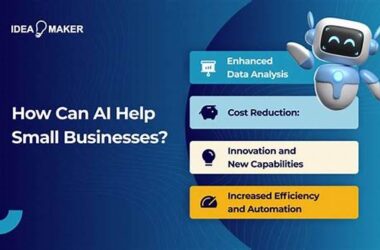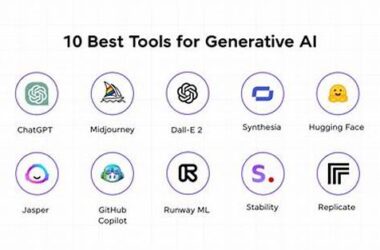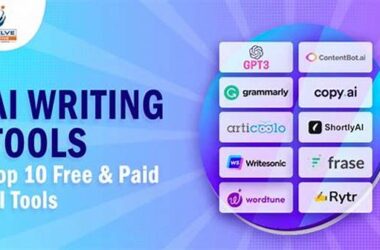AI Tools for Research
In the ever-evolving landscape of technology, the applications of Artificial Intelligence (AI) have transcended beyond just automation and robotics, seeping into fields such as research, where its impact is transforming the way we synthesize, analyze, and conclude studies. The power of AI tools for research is unmatched, offering efficiency and depth previously unattainable. Imagine sifting through thousands of articles, summarizing key findings, and generating insightful correlations within minutes. That’s the promise of AI tools for research—accelerating the research process while maintaining accuracy and depth. Whether you’re a seasoned scholar or a curious novice, AI tools can enhance your capacity to uncover hidden narratives in data, drive innovative solutions, and most importantly, free up time for creative and critical thinking—because let’s face it, research is as much an art as it is a science.
Read More : Best Ai Tools For Hr Recruitment In 2025
With the breadth of data being generated daily, traditional research methods are facing a formidable challenge. That’s where AI tools for research come in. These tools offer comprehensive capabilities—from natural language processing, data mining, to predictive analytics—streamlining tasks that would have taken entire teams several weeks, if not months. This efficiency is not just a luxury; it’s essential in a world where the speed of knowledge creation is critical to staying relevant. Researchers can now rely on AI to help in organizing and understanding large sets of data, identify patterns, and make more informed decisions—ultimately leading to more robust and credible research outcomes.
While the benefits are powerful, it’s crucial to address the concerns and limitations of AI tools in research, like bias, data security, and the loss of the human touch in interpreting results. Yet, despite these challenges, the advantages of using AI tools far outweigh the drawbacks. Pioneering AI technology in research opens the gate to endless possibilities and collaboration opportunities across disciplines, redefining the future of exploration and comprehension. Imagine a world where siloed findings in distant fields intersect seamlessly, spurring groundbreaking discoveries that could solve the world’s most pressing challenges. That’s not just a vision—it’s an unfolding reality, thanks to AI tools for research.
Key Benefits of AI Tools for Research
AI tools enhance research potential by transforming traditional methodologies into dynamic systems capable of handling complex data sets with ease. Through user-friendly interfaces, these tools provide researchers with insights that are both detailed and holistic, bridging the gap between what is known and yet to be discovered. The real magic lies in their ability to empower users to tackle more diverse questions, and therefore, create solutions that are impactful and enduring.
—
Structure Overview: AI Tools for Research
In the competitive and rapidly advancing field of research, keeping up with the latest trends and technology can be an uphill task. Researchers are constantly on the lookout for tools that can streamline their work and enhance the quality of their findings. AI tools for research are among the most revolutionary advancements available today. They provide unique selling points and features that align with the current needs of the scientific community. By leveraging AI, researchers can significantly boost their productivity and accuracy, making it a vital component of modern research methodologies.
One of the key attention-grabbing aspects of AI tools for research is their ability to automate mundane tasks, allowing researchers to allocate more time towards critical thinking and hypothesis development. This technology is a gold mine for deriving interest from academics and industry professionals alike due to its compelling efficiency and data-processing capabilities. Instead of bogging down researchers with tedious data collection and analysis tasks, AI tools manage these labor-intensive chores, thus amplifying the desire among researchers to engage with this transformative technology.
Adopting AI tools for research not only fulfills the desire for increased efficiency but also meets the action-oriented needs of researchers who demand actionable insights. With AI’s capability to interpret vast datasets and highlight actionable insights, the route from data acquisition to the drawing board has never been shorter. The analytical prowess exhibited by AI technologies grants researchers a sharper edge in validating their studies and executing their academic or commercial endeavors with greater confidence.
From a promotional and educational perspective, AI tools for research are portrayed as indispensable in the research toolkit of the future. They cater to both the logical and emotional facets of the research community by providing rational advantages like increased data accuracy, alongside emotional benefits such as reduced stress and workload for researchers. In essence, AI tools for research present a harmonious blend of innovation and practicality, making them a standout choice for today’s and tomorrow’s scientific inquiries.
The Versatile Applications of AI Tools
AI tools for research are not restricted to one specific dimension but span across various functionalities. From predictive modeling to semantic analysis, to intelligent search capabilities—these tools are engineered to adapt and evolve alongside scientific progress. This versatility ensures that researchers are never left behind irrespective of the field they are operating in.
—
Discussion: Exploring AI Tools for Research
The realm of research has been indelibly marked by the advent of AI tools, reshaping traditional methodologies and presenting new ways to conceive and execute studies. As researchers find themselves inundated with an ever-growing amount of data, AI tools for research have emerged as invaluable assets. In a community perspective, understanding the breadth and depth of these tools is crucial for maximizing their potential. By effectively utilizing these tools, the scope of what can be accomplished in research is vastly expanded, offering a new frontier of possibilities.
AI tools for research offer a multitude of applications that can be dissected through storytelling as much as through analytics. Imagine a senior researcher reflecting on their days spent grappling with data organization issues, only to now work unfettered with real-time data analysis tools that liberate intellectual and creative capacities. Such testimonials are not uncommon among researchers who have embraced AI tools, illustrating an emotional journey that resonates with many in the field. With the ability to process diverse datasets smoothly, these tools invite exciting conversations about the multifaceted roles AI plays within research environments.
However, seamless deployment and active engagement with AI tools require a change in mindset and a willingness to adapt. The research community must embrace this evolution, acknowledging that while AI brings incredible advantages, it also requires a reevaluation of traditional processes. Yet, this challenge is overshadowed by the promise these tools hold, which is evidenced by their increasing integration into global research institutions. For any researcher aiming to stay at the cutting edge, understanding and implementing AI tools for research is a crucial first step toward contemporary relevance and success.
Navigating the Future of Research with AI
As AI tools for research become more sophisticated, they will continuously redefine potential outcomes. Researchers can look forward to a future where these tools not only support but exceed the capabilities of existing methodologies, helping blaze a trail towards groundbreaking discoveries and innovations.
The Evolution and Impact of AI Tools in Research
AI is continually evolving, and its impact on research methodologies cannot be overstated. These tools are catalysts for efficiency, accuracy, and creativity, driving solutions that were once thought to be beyond reach. Embracing AI tools signals a new era in research, promising advancements that are both profound and practical.
—
Tips for Maximizing AI Tools for Research
Embracing AI tools for research can seamlessly elevate your productivity and problem-solving capabilities. Here are nine effective tips to maximize these powerful tools:
Introducing AI tools for research into your practices not only strengthens the quality of your work but also reduces the time spent on data-intensive processes. These tips serve as a starting point for any researcher looking to harness the true power of AI. Through strategic implementation and continuous learning, you’ll not only enhance your efficiency but also unlock new research potential that challenges conventional boundaries. Remember, the successful integration of AI into research methodologies begins with understanding its functionalities and applying it in a manner that complements your objectives and goals.
—
A New Era of Discovery: AI Tools for Research
In a world where data is the new oil, researchers are sitting on barrels worth of potential breakthroughs, and AI tools for research are the refineries transforming raw numbers into innovative insights. The rapid advancement of AI is reshaping every aspect of research, from foundational studies to cutting-edge innovations, creating a dynamic ecosystem of knowledge transformation. This era of discovery, empowered by AI, promises a more efficient and insightful approach to unearthing truths and forging new paths in science and beyond.
Getting Started with AI Tools in Research
Stepping into the world of AI tools for research can seem daunting at first, yet the initial learning curve is counterbalanced by the significant advantages these tools offer. Researchers can begin by opting for intuitive AI platforms that require minimal technical expertise but offer high functionality. The user-friendly nature of many AI applications means that even those with limited technical backgrounds can swiftly adapt and integrate these tools into their workflows. The promise is clear—the more these tools are used, the more efficient and accurate the research outcomes become.
Transformative Impact: AI Tools Unleashing Creativity
AI tools for research are not just about crunching numbers; they unleash creativity by allowing researchers to focus more on decision-making and strategy formulation rather than mundane tasks. These tools promote a balance between the mechanical aspects of research and the intuitive, innovative angles that spur significant breakthroughs. By shouldering the burden of routine tasks, AI enables researchers to pursue curiosities and explore uncharted territories, which often leads to serendipitous discoveries that can spark new fields of inquiry. The ability to cross-validate, explore larger datasets, and simulate scenarios in real time aids researchers in navigating everything from biology to space exploration.
The application of AI tools for research is profoundly transforming investigative processes, fostering interdisciplinary collaboration and generating comprehensive insights. Whether it’s leveraging AI for machine learning, data mining, or automating literature reviews, these tools not only make current research more robust but also future-proof methods for years to come. As AI continues to develop, its role in research will only grow, intertwining itself inextricably with the research methodologies of tomorrow. The message is clear: Embrace AI tools, for they hold the keys to the future of groundbreaking discoveries and innovations in research.
Embracing Change: AI’s Role in Future Research
The future of research is brightened by AI’s contributions. By adopting AI tools in research, scientists and researchers are setting a precedent for the next generation of inquiry. This shift not only enhances current methodologies but also lays the groundwork for future discoveries, ensuring that research remains at the forefront of technological and intellectual evolution.



